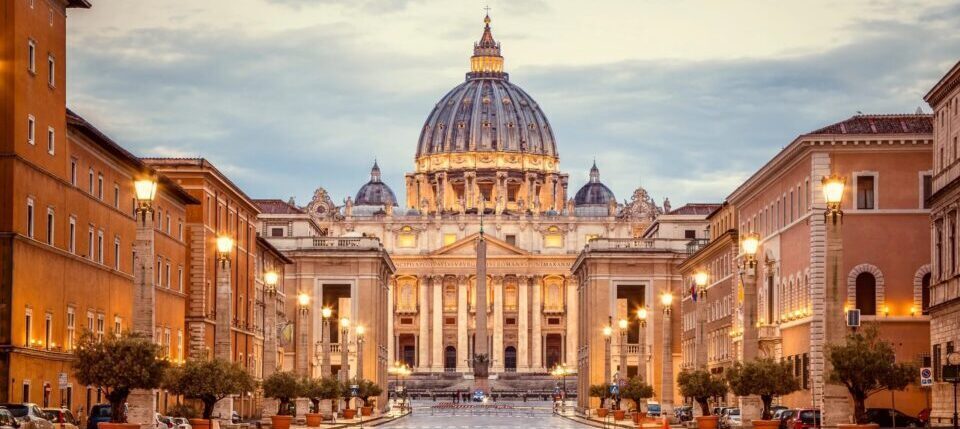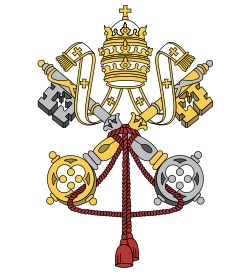Pope Leo XIV has called on Christians to move beyond “theological controversies” that no longer serve the cause of unity and to rediscover together the faith professed at the Council of Nicaea 1,700 years ago.
In a new apostolic letter, In unitate fidei (“In the Unity of Faith”), released Nov. 23, the solemnity of Christ the King, the pope links the anniversary of the first ecumenical council to the Holy Year of 2025 and to his upcoming apostolic journey to Türkiye, where he will commemorate Nicaea’s 1700th anniversary and take part in an ecumenical event with Ecumenical Patriarch Bartholomew on Nov. 30 before traveling on to Lebanon.
“I would like this Letter to encourage the whole Church to renew her enthusiasm for the profession of faith,” the pope writes, stressing that the Nicene-Constantinopolitan Creed “for centuries… has been the common heritage of Christians, and it deserves to be professed and understood in ever new and relevant ways.”
In a strong ecumenical appeal, Leo XIV says the Nicene Creed “can be the basis and reference point” for a renewed journey toward full communion among Christians. “It offers us a model of true unity in legitimate diversity. Unity in the Trinity, Trinity in Unity, because unity without multiplicity is tyranny, multiplicity without unity is fragmentation,” he writes.
“We must therefore leave behind theological controversies that have lost their raison d’être in order to develop a common understanding and even more, a common prayer to the Holy Spirit, so that he may gather us all together in one faith and one love,” the pope continues.
“The restoration of unity among Christians does not make us poorer; on the contrary, it enriches us,” he adds, calling the goal of full visible unity “a theological challenge and, even more so, a spiritual challenge, which requires repentance and conversion on the part of all.”
‘This Creed gives us hope’
Linking Nicaea to today’s crises, Leo XIV notes that the Holy Year is dedicated to the theme “Christ our hope” and that the Nicene Creed remains a source of confidence amid war, injustice, and suffering.
“In this Holy Year, dedicated to the theme of Christ our hope, it is a providential coincidence that we are also celebrating the 1700th anniversary of the First Ecumenical Council of Nicaea,” he writes. That council, he recalls, “proclaimed the profession of faith in Jesus Christ, Son of God. This is the heart of the Christian faith.”
“In these difficult times we are living, amid so many concerns and fears, threats of war and violence, natural disasters, grave injustices and imbalances, and the hunger and misery suffered by millions of our brothers and sisters, this Creed gives us hope,” the pope says.
Leo XIV presents the letter as an invitation for all Christians “to walk in harmony, guarding and transmitting the gift they have received with love and joy,” especially through the words of the Creed: “I believe in one Lord Jesus Christ, the Only Begotten Son of God… for our salvation he came down from heaven.”
Nicaea and the heart of the Christian faith
The pope devotes much of In unitate fidei to explaining the historical and theological context of the Council of Nicaea, which met in 325 to address the Arian controversy over the divinity of Christ.
The dispute, he notes, “concerned the essence of the Christian faith,” namely the answer to Jesus’ question in the Gospel: “Who do you say that I am?” In response, the Nicene Fathers confessed that Jesus is the Son of God “in as much as he is of the substance (ousia) of the Father… ‘begotten, not made, consubstantial (homooúsios) with the Father.’”
“The Fathers of Nicaea were firm in their resolution to remain faithful to biblical monotheism and the authenticity of the Incarnation,” Leo XIV writes. By adopting terms such as “substance” and “consubstantial,” which are not found in Scripture, the Council “did not… replace biblical statements with Greek philosophy,” he explains. Rather, it sought “to affirm biblical faith with clarity and to distinguish it from Arius’ error, which was deeply influenced by Hellenism.”
“The Nicene Creed does not depict a distant, inaccessible and immovable God who rests in himself, but a God who is close to us and accompanies us on our journey in the world, even in the darkest places on earth,” the pope writes. “His immensity is revealed when he makes himself small, laying aside his infinite majesty to become our neighbor in the little ones and in the poor. This revolutionizes pagan and philosophical conceptions of God.”
Leo XIV also highlights the Nicene emphasis on the full humanity of Christ, noting the clarification that the Word “became man.” Against teachings that suggested the Logos only assumed a body, he recalls that later councils made explicit that “in Christ, God assumed and redeemed the whole human being, body and soul.”
Pope Leo XIV urges Christians to move beyond outdated theological disputes
24 Monday Nov 2025
NEWS


